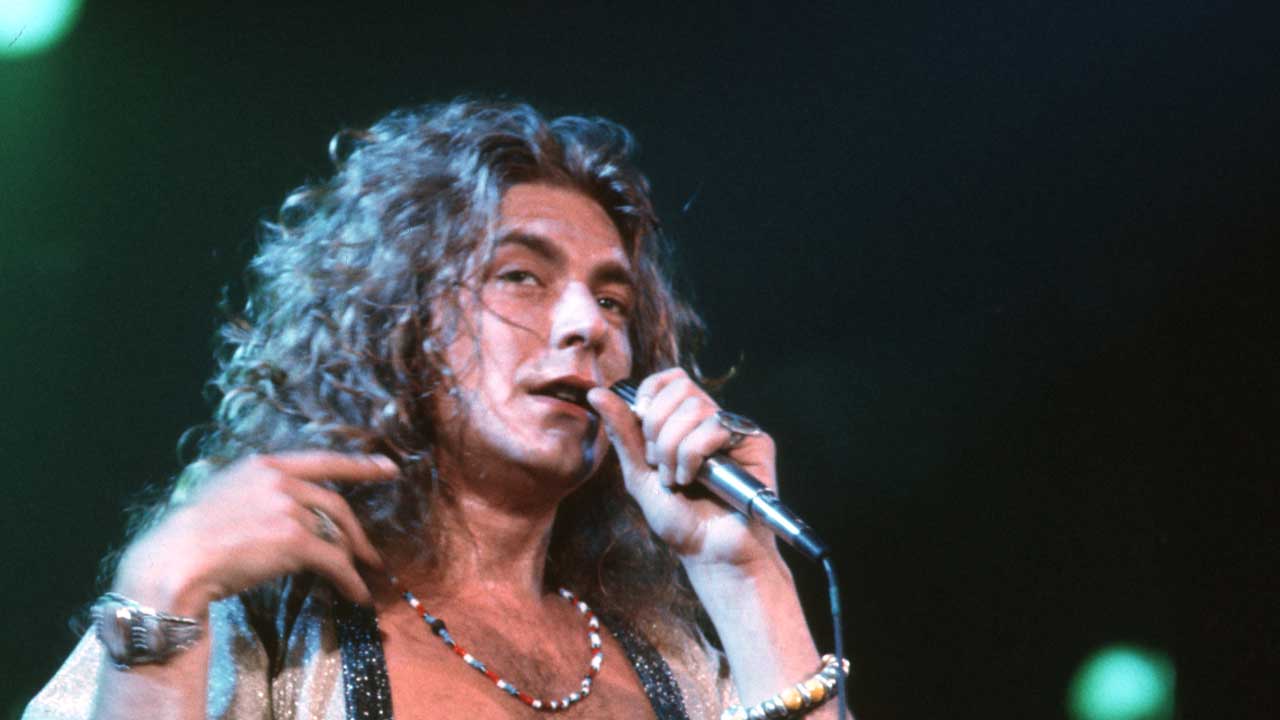Kashmir: the story of the song Robert Plant calls "Perfect Zeppelin"
Robert Plant reveals why Physical Graffiti highlight Kashmir really marks Led Zeppelin's most towering musical peak

“I wish we were remembered for Kashmir more than Stairway To Heaven,” Led Zeppelin singer Robert Plant told me more than three decades after the the former song was first released as the last track on side two of the band’s Physical Graffiti double album. “It’s so right; there’s nothing overblown, no vocal hysterics. Perfect Zeppelin.”
It certainly is. Indeed of all the many fine musical moments Led Zeppelin would accumulate throughout their eight-studio-album career, Kashmir remains one of their hallmark tracks. It’s of the same order of class as previous touchstone moments Whole Lotta Love and Stairway To Heaven – that is, destined to transcend all musical barriers and become universally recognised as a classic. It was also arguably the last time they would scale such heights.
A musical and metaphorical drive toward some irresistible far-off horizon (utilising the same signature DADGAD tuning that guitarist Jimmy Page had previously used to create such memorable showcases from his repertoire as White Summer and Black Mountain Side), Kashmir encapsulated Led Zeppelin’s multi-strand approach to making rock music: part rock, part funk, part African dust storm.
Originally titled Driving To Kashmir, the song had begun as a lyric Plant had been inspired to write in the autumn of 1973 after a long, seemingly never-ending drive through “the waste lands”, as he put it, of southern Morocco. It's meaning had nothing to do with Kashmir, in northern India, at all.
As Plant explained Kashmir's meaning to Cameron Crowe, it was about the road journey itself rather than a specific geographical location: “It was a single-track road which neatly cut through the desert. Two miles to the east and west were ridges of sand rock. It looked like you were driving down a channel, this dilapidated road, and there was seemingly no end to it.” Hence, Plant said, the opening lyric: ‘Oh let the sun beat down upon my face, stars to fill my dreams.’
Musically, the juddering rhythm had erupted out of a late-night session involving Page and drummer John Bonham during one of the band’s regular stays at Headley Grange, the haunted mansion in East Hampshire where they recorded so many tracks in the early 70s.
“It was just Bonzo and myself,” Page said. “He started the drums, and I did the riff and the overdubs, which in fact get duplicated by an orchestra at the end, which brought it even more to life. It seemed so sort of ominous and had a particular quality to it. It’s nice to go for an actual mood and know that you’ve pulled it off.”
Sign up below to get the latest from Classic Rock, plus exclusive special offers, direct to your inbox!
The number was temporarily abandoned when recording was halted by the unforeseen disappearance of bassist John Paul Jones, who had decided to leave Zeppelin after becoming appalled at some of the more ‘vivid’ off-stage scenes surrounding the band’s notoriously outrageous US tour in the summer of 73.
After a deal was brokered with Jones that included the band relocating to the plush nearby Frencham Ponds hotel (except for Page, who stayed behind at Headley) Zeppelin recommenced at the beginning of 1974. It was now that the serious work on Kashmir was completed, with Jones sketching out what would later become the orchestral parts with his Mellotron. Plant, though, struggled. Delighted with his lyrics, he admitted he was “petrified” and “virtually in tears” at trying to sing along with Kashmir’s unusual rhythmic pattern.
“It was an amazing piece of music to write to, and an incredible challenge for me,” he later recalled. “The whole deal of the song is… not grandiose, but powerful: it required some kind of epithet, or abstract lyrical setting about the whole idea of life being an adventure and being a series of illuminated moments.”
The finishing touch was the addition of real string and horn parts, recorded in May that year at Olympic Studios, in London, where overdubs were also laid down. The finished track was a truly epic rock classic, panoramic in scope, featuring the full-spectrum Zeppelin sound.
Was it the best thing the band would ever do? Robert said it was. Years later, Jimmy told me: “Well it was certainly one of them.”
The bigness of Kashmir fitted Page’s increasingly lofty ambitions, his burning desire to prove wrong the naysayers who had hounded Led Zeppelin in the press since the band’s inception. Physical Graffiti was an album all about scope (it included both the longest and shortest tracks the band would ever record), and Kashmir was to be the jewel in the crown; Page determined to showcase the “bigger palette” Zeppelin had at their disposal than nearest rivals like the Stones, who Zeppelin outsold but had never matched for credibility.
There were also some moments where cloaked references to Page’s ongoing obsession with the occult could be discerned: images of ‘Talk and song from tongues of lilting grace’ and a ‘pilot of the storm who leaves no trace, like thoughts inside a dream’ – pilot? Or Magus, perhaps?
Performed for the first time on the band’s 1975 US tour, Kashmir became the new centrepiece of the set, Jimmy stomping around in his specially designed new suit embroidered with dragons, crescent moons, spangly stars, blood-red poppies and the ‘ZoSo’ emblem.
At their Earls Court shows, in May, Plant described Kashmir to the audience as a song about revisiting “our travels in Morocco… and the story of our wasted, wasted times”. Two years later, during the band’s last, disastrous, US tour he reflected: “I think I will go to Kashmir one day, when some great change hits me and I have to really go away and think about my future as a man rather than a prancing boy.”
That “great change”, though he didn’t know it yet, was fast approaching.
Mick Wall is the UK's best-known rock writer, author and TV and radio programme maker, and is the author of numerous critically-acclaimed books, including definitive, bestselling titles on Led Zeppelin (When Giants Walked the Earth), Metallica (Enter Night), AC/DC (Hell Ain't a Bad Place To Be), Black Sabbath (Symptom of the Universe), Lou Reed, The Doors (Love Becomes a Funeral Pyre), Guns N' Roses and Lemmy. He lives in England.

